
This four-part module equips healthcare workers with the knowledge and practical skills to safely ask about and respond to intimate partner violence (IPV) in clinical settings. Through case scenarios, survivor-centered strategies, and guidance on the LIVES approach, participants learn how to provide ethical, confidential, and compassionate care—including how to navigate disclosures, make referrals, and monitor for adverse events related to index testing. The course emphasizes respect, safety, and trust to ensure all clients feel supported, regardless of their circumstances.
Primary Audience: contact investigators and health care professionalsCourse Date: October 1, 2025 - September 30, 2026Estimated Completion Time: 6 - 7.5 hours
Primary Audience: contact investigators and health care professionalsCourse Date: October 1, 2025 - September 30, 2026Estimated Completion Time: 6 - 7.5 hours
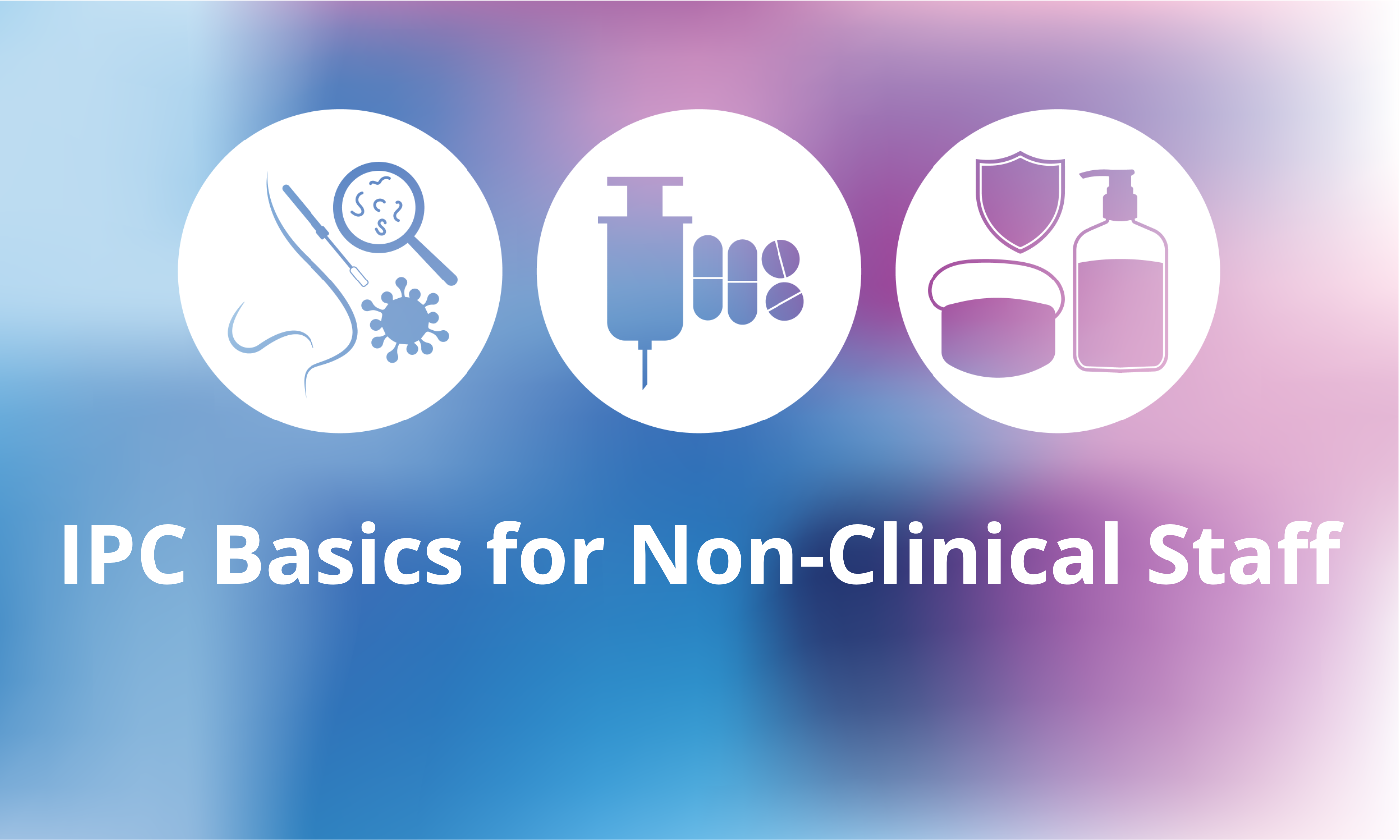
Infection Prevention and Control (IPC) is crucial in healthcare settings to minimize the risk of healthcare-associated infections and promote patient safety. This course, developed by the World Health Organization (WHO), offers an introduction to IPC for non-clinical staff. It aims to strengthen your knowledge of IPC, guide IPC implementation, and support policy development in your health facility. The Basic Infection Prevention and Control (IPC) for Non-Clinical Staff is a self-paced course is designed to provide non-clinical staff, including administrative and ancillary workers, with a solid foundation in IPC principles and practices.
Primary Audience: Non-clinical staff, including administrative and ancillary workers, in healthcare facilities; individuals seeking an introduction to IPC principles and practices; Those responsible for implementing IPC policies and procedures in their healthcare facility; staff members with expanded IPC responsibilities who require foundational knowledge in IPC. Course Date: October 1, 2025 - September 30, 2026 Estimated Completion Time: 3 hours
Primary Audience: Non-clinical staff, including administrative and ancillary workers, in healthcare facilities; individuals seeking an introduction to IPC principles and practices; Those responsible for implementing IPC policies and procedures in their healthcare facility; staff members with expanded IPC responsibilities who require foundational knowledge in IPC. Course Date: October 1, 2025 - September 30, 2026 Estimated Completion Time: 3 hours
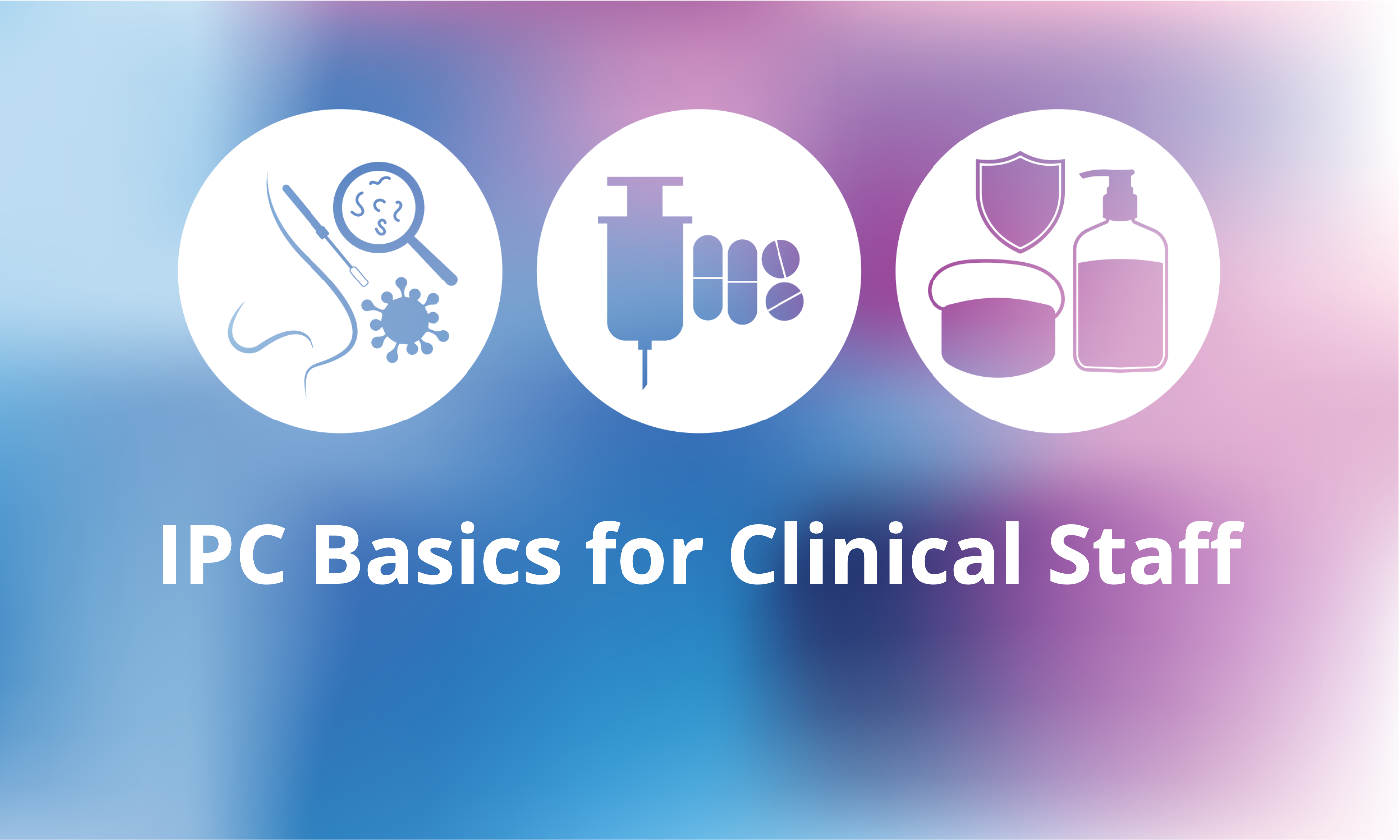
Infection Prevention and Control (IPC) is a critical aspect of healthcare systems worldwide. By improving IPC practises, we have the opportunity to reduce avoidable morbidity and mortality. Developed by the World Health Organisation (WHO), this training package aims to strengthen the IPC knowledge of health workers, ultimately enhancing patient safety. The online course Basic Infection Prevention and Control (IPC) for Clinical Staff is a self-paced course is designed to provide clinical staff, including clinicians and nurses, with a comprehensive understanding of IPC principles and practices.
Primary Audience: This course is specifically designed for: clinical staff, including clinicians and nurses, who are seeking an introduction to IPC principles and practices; individuals responsible for implementing IPC policies and procedures in healthcare facilities; and healthcare workers who are looking to enhance their IPC knowledge and contribute to patient safety. Course Date: October 1, 2025 - September 30, 2026 Estimated Completion Time: 8 - 10 hours
Primary Audience: This course is specifically designed for: clinical staff, including clinicians and nurses, who are seeking an introduction to IPC principles and practices; individuals responsible for implementing IPC policies and procedures in healthcare facilities; and healthcare workers who are looking to enhance their IPC knowledge and contribute to patient safety. Course Date: October 1, 2025 - September 30, 2026 Estimated Completion Time: 8 - 10 hours
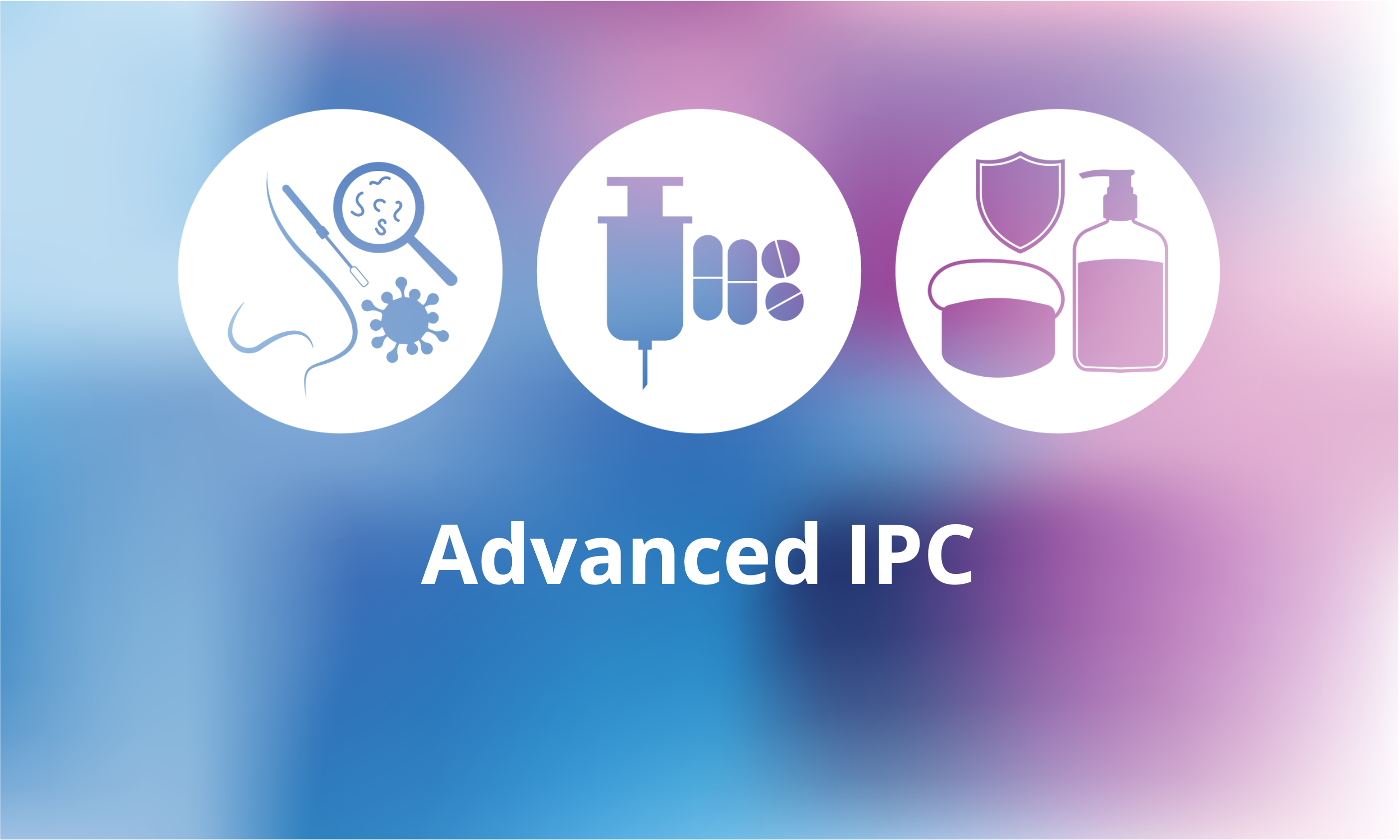
Welcome to the online course “Advanced Infection Prevention and Control (IPC).” This self-paced course is designed for Medical Officers of Health and other leaders in the healthcare system who have completed and passed the course “Basic Infection Prevention and Control (IPC) for Clinical Staff.” The course aims to provide advanced knowledge and skills in IPC to support the implementation of effective IPC programs.
Primary Audience: Medical Officers of Health and other leaders in the healthcare system. IPC professionals, hospital administrators, and epidemiologists. IPC hospital teams and other relevant healthcare professionals. Participants are required to have completed and passed the course “Basic Infection Prevention and Control (IPC) for Clinical Staff” before enrolling in this course. Course Date: October 1, 2025 - September 30, 2026 Estimated Completion Time: 6 - 8 hours
Primary Audience: Medical Officers of Health and other leaders in the healthcare system. IPC professionals, hospital administrators, and epidemiologists. IPC hospital teams and other relevant healthcare professionals. Participants are required to have completed and passed the course “Basic Infection Prevention and Control (IPC) for Clinical Staff” before enrolling in this course. Course Date: October 1, 2025 - September 30, 2026 Estimated Completion Time: 6 - 8 hours
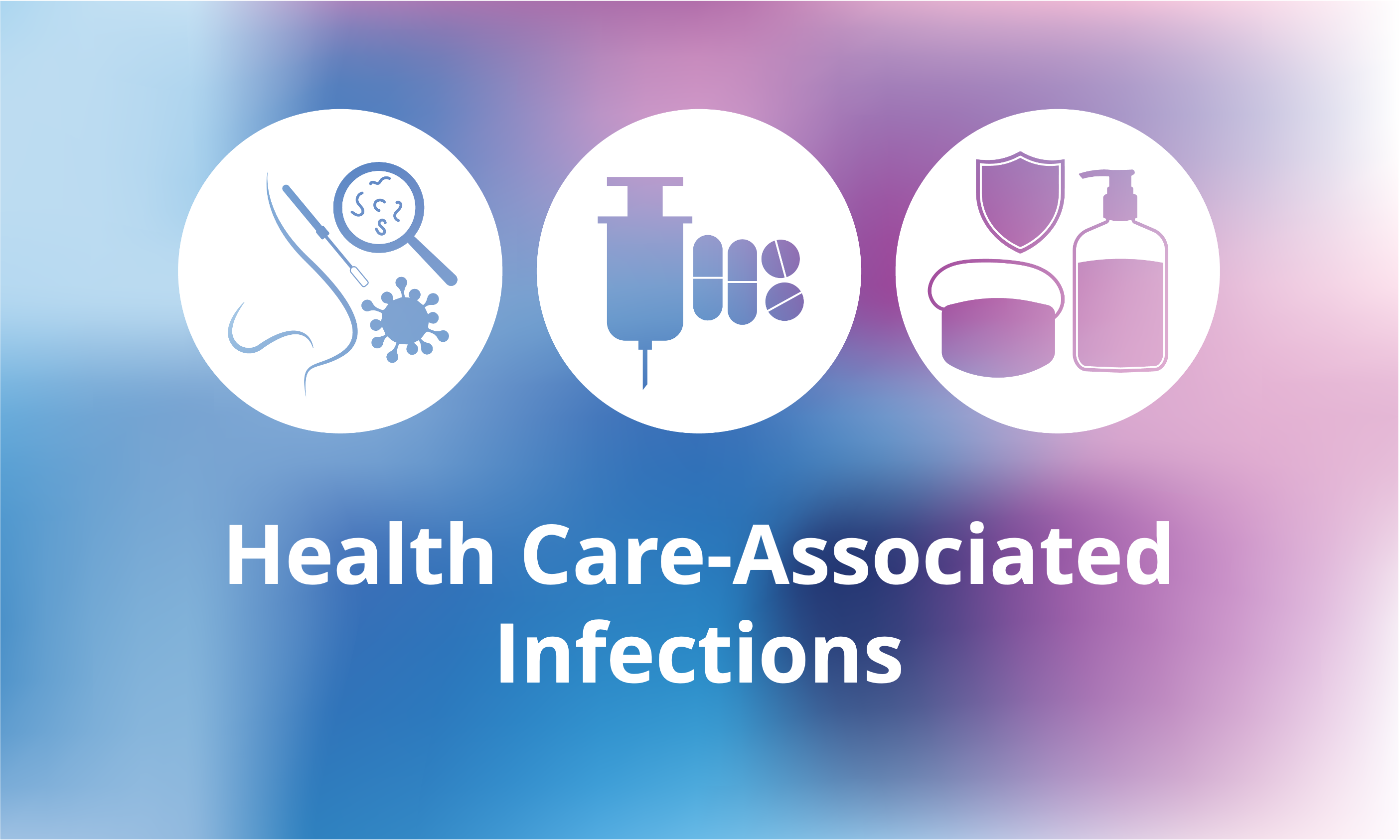
Welcome to the online course “Healthcare-Associated Infection (HAI) Surveillance and Prevention.” This self-paced course is designed for clinicians (doctors and family nurse practitioners) who have completed and passed the course “Basic Infection Prevention and Control (IPC) for Clinical Staff.” The course focuses on the critical component of HAI surveillance in an effective IPC program. You will explore the basic concepts of epidemiology and learn about the proper planning cycles for implementing HAI surveillance.
Primary Audience: This course is specifically designed for clinicians who have completed the course “Basic Infection Prevention and Control (IPC) for Clinical Staff.” The target audience includes clinicians involved in patient care, medical and nursing staff, and infection prevention and control professionals. Course Date: October 1, 2025 - September 30, 2026 Estimated Completion Time: 6 - 8 hours.
Primary Audience: This course is specifically designed for clinicians who have completed the course “Basic Infection Prevention and Control (IPC) for Clinical Staff.” The target audience includes clinicians involved in patient care, medical and nursing staff, and infection prevention and control professionals. Course Date: October 1, 2025 - September 30, 2026 Estimated Completion Time: 6 - 8 hours.

Telemedicine has transformed HIV care and treatment, enabling remote access to quality healthcare services. In this course, you will explore the fundamentals of telemedicine and gain the necessary knowledge and skills to excel in virtual HIV care settings. Enhance your skills in providing care and treatment for HIV patients while familiarising yourself with the Jamaica Telemedicine Standard Operating Procedures (SOPs). This course is designed to support the implementation of telemedicine across HIV treatment sites in Jamaica, empowering healthcare professionals to deliver exceptional care remotely.
Primary audiences: Healthcare professionals involved in HIV care and treatment, telehealth providers and administrators, clinical staff are seeking to expand their knowledge of telemedicine in HIV care, public health practitioners engaged in HIV programme management, and medical educators and curriculum developers. Course Date: October 1, 2025 - September 30, 2026 Estimated Completion Time: 2 - 4 hours
Primary audiences: Healthcare professionals involved in HIV care and treatment, telehealth providers and administrators, clinical staff are seeking to expand their knowledge of telemedicine in HIV care, public health practitioners engaged in HIV programme management, and medical educators and curriculum developers. Course Date: October 1, 2025 - September 30, 2026 Estimated Completion Time: 2 - 4 hours
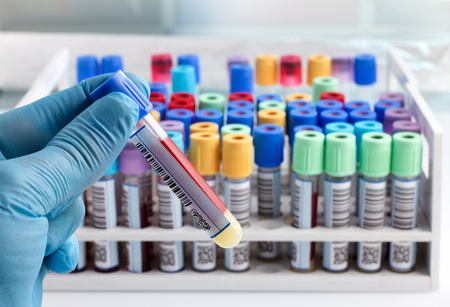
The viral load flipcharts are intended to help health workers provide information about viral load monitoring to patients (or their parents) and to explain the meaning of viral load results. In addition, they guide the provision of enhanced adherence counseling to patients with elevated viral load. The flipcharts were developed for a range of health care workers (e.g., adherence counselors, doctors, nurses, pharmacists, community health workers) who work with patients living with HIV and their families in settings where viral load testing is being performed. There are three versions of the flipchart: one for adult (non-pregnant nor breastfeeding) patients, one for adolescent patients, and one for infants and children.
Primary Audience: Clinicians, including doctors, nurses, and other healthcare professionals working with adolescents in HIV care and treatment. Psychosocial providers, including social workers, counselors, and psychologists, involved in supporting adolescents living with HIV. Other healthcare professionals involved in HIV care. Course Date: October 1, 2025 - September 30, 2026 Estimated Completion Time: 2-5 hours
Primary Audience: Clinicians, including doctors, nurses, and other healthcare professionals working with adolescents in HIV care and treatment. Psychosocial providers, including social workers, counselors, and psychologists, involved in supporting adolescents living with HIV. Other healthcare professionals involved in HIV care. Course Date: October 1, 2025 - September 30, 2026 Estimated Completion Time: 2-5 hours